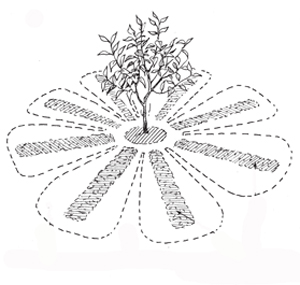
Come meet Emma Hempstead, Agrarian Trust’s Agrarian Lawyers Network Shepherd in person at this event and learn more about commons in the modern era!
Our friends at the Dynamics Ecological Design are putting on a workshop to answer the question: How can we consciously, creatively, and practically adapt and reintegrate practices and patterns of commoning into our modern cultural contexts?
Find the answers in a Friday evening public talk and Saturday one-day workshop with David Bollier and Dave Jacke
For all its benefits, the dominance of capitalist economics has also generated a world of predatory, extractive markets based on short-term self-interest that is literally destroying the planet. What feasible alternatives exist? This workshop will explore the potential of the commons as a practical and fair system of local provisioning, governance, and culture for transforming society.
From early in human cultural evolution until only a few centuries ago, the vast majority of resources was held and managed in common. Certain groups of people formed agreements about how to use and manage specific shared resources, from woodlands and farm fields to pastures and water, and they managed those resources sustainably for generations. It took the privateers hundreds of years to consolidate their power, control the structures of the state, and exploit cheap energy to destroy the commons systems of Europe and the global South. The unbridled privatization and commoditization of commons that inaugurated the Industrial Revolution continues today, with catastrophic results for planetary ecosystems and social well-being.
Reinventing “commoning” can begin to counterbalance these market and state forces. Commons systems provide human-scaled social structures for shared resource management and the nurturing of community relationships. They foster regenerative stewardship, ethical long-term relationships, and the common good. Commoning requires cultures of skillful social negotiation and coordination, and the development of trust and shared purpose.
The two-hour Friday evening public talk will introduce the essence of the problems we face and how commoning can help us solve them. We’ll also explore some of the history, principles, and concepts of commoning as a new and old social form, and examine a few case studies of commons systems that can inspire us and give us practical direction. You can register for the Friday evening talk by itself and come away with new eyes, hope for a better future, and sense of how we might get there.
The Saturday workshop will build on Friday evening’s talk through lectures, discussions, exercises, and case studies in an environment fostering co-learning and co-creation. How do principles of ecology and the commons converge? What do commons systems entail philosophically and experientially, and imply politically and culturally? What contemporary, cross-cultural examples exist? We’ll also explore how we might apply commons principles to the design of Brook’s Bend Farm, a nascent community farm in Montague, MA. Workshop leaders David Bollier and Dave Jacke will combine forces and ideas with participants to see what we can learn together as we begin to reinvent commoning here and now.
You can attend the Friday night talk by itself, or come for Friday night and the Saturday workshop as a package, which includes a soup lunch on Saturday.
Facilitator Bios:
Independent scholar, activist, and blogger David Bollier focuses on the commons as a new paradigm of economics, politics, and culture. He pursues this work primarily as co-founder of the Commons Strategies Group, an advocacy/consulting project, and as Director of the Reinventing the Commons Program at the Schumacher Center for a New Economics in Great Barrington, Massachusetts. Bollier has written or edited eight books on the commons, including Think Like a Commoner: A Short Introduction to the Life of the Commons (2014) and, with co-editor Silke Helfrich, Patterns of Commoning (2015). He lives in Amherst, Massachusetts, and blogs at Bollier.org.
Dave Jacke has studied and practiced ecological culture design since the mid-1970s, sometimes under the banner of permaculture, but mostly through his firm Dynamics Ecological Design. Since writing the now-classic two-volume tome Edible Forest Gardens with Eric Toensmeier, he has come to firmly believe that we must spend at least as much time designing our human social structures as our ecological landscapes. Dave’s research on ancient land use in Britain led him to appreciate the long, close relationship between commoning and land management practices like coppicing, both of which will likely become essential again in the near future.
For more information and to register:
[email protected]
603-831-1298
Friday, January 20, 2017, 7-9 PM, $10 @ door or in advance.
Saturday, Jan 21, 2017, 8:30-5, $85-125, includes Friday evening and a soup lunch. Preregistration required.
Montague Common Hall (“Grange”), 34 Main St., Montague, MA 01351
To register, send checks to:
Dave Jacke
33 E. Taylor Hill Road
Montague, MA 01351
Or register through Brown Paper Tickets (fees apply).


